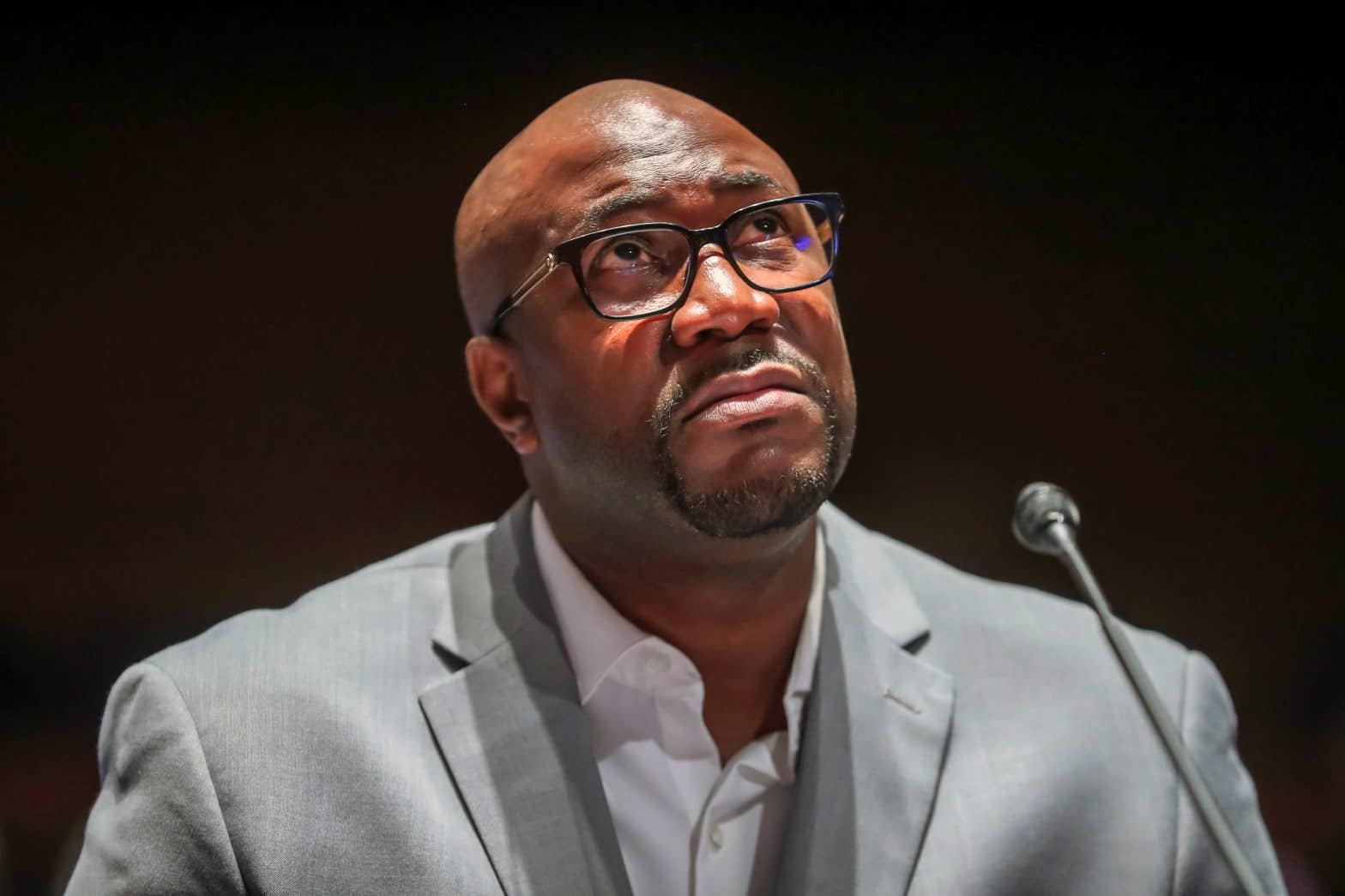Civil Rights Leaders Tell Congress Police Practices Need Reform

African American civil rights leaders spoke out in support Wednesday of a bill pending in Congress that would set national standards for police behavior.
It also would ban chokeholds, reduce legal immunity for police misconduct and create a national database of abusive officers.
“It never should be that you can do chokeholds in one city but not another,” Rep. Karen Bass, D-Calif., said during a hearing of the House Judiciary Committee.
Bass was one of three African American members of Congress who authored the bill, called the Justice in Policing Act.
The pending bill was a response to the May 25 killing by strangulation of George Floyd by a Minneapolis police officer who kneeled on his neck.
Public outrage led to nationwide and international protests that continue this week. It also prompted members of Congress to call for reforms.
Witnesses at the hearing Wednesday included Floyd’s brother, Philonise Floyd, who said, “He didn’t deserve to die over $20.”
He was referring to the fact that retail workers called police when Floyd apparently tried to pass a counterfeit $20 bill.
Philonise Floyd mourned his 6-feet, 6-inch brother as “a gentle giant” but had harsher words for the police charged with killing him.
“Hold them accountable when they do something wrong,” he said.
Other provisions of the Justice in Policing Act would prohibit federal, state, and local law enforcement from racial profiling of criminal suspects. It also would require them to receive training on avoiding racial and religious discrimination.
Sponsors of the bill were trying to respond to a law enforcement reform movement while avoiding more drastic demands by protesters to defund police departments. The protesters want the money shifted to community awareness and education programs.
Witnesses and congressmen at the hearing warned of severe consequences if police budgets are eliminated or even reduced.
Rep. Jim Jordan, R-Ohio, said most Americans recognize the killing of George Floyd was wrong but warned against a reaction that is too severe.
“It’s a tragedy, it never should have happened,” he said.
However, other police officers who sometimes risk their lives to protect the public should not be subjected to the effort to take away funding for their departments.
“This is wrong and the American people know it is wrong,” Jordan said.
Witnesses who agreed reform is needed also agreed that defunding police is ill-advised.
One of them was Darrell Scott, pastor of Cleveland’s New Spirit Revival Center, who described how reduced funding for his city’s police department resulted in more crime.
Murder and drug crimes increased dramatically as the police budget fell 31% in recent years, he said. Layoffs led to a reduction in officers from around 1,900 to about 1,500.
“Once safe areas of the city are now unsafe,” Scott said. “I endorse police reform but it has to be sensitive to both sides of that issue.”
Houston Police Chief Art Acevedo said, “History has shown that underfunding the police can have disastrous consequences.”
He added, “The overwhelming majority of cops are good people.”






















